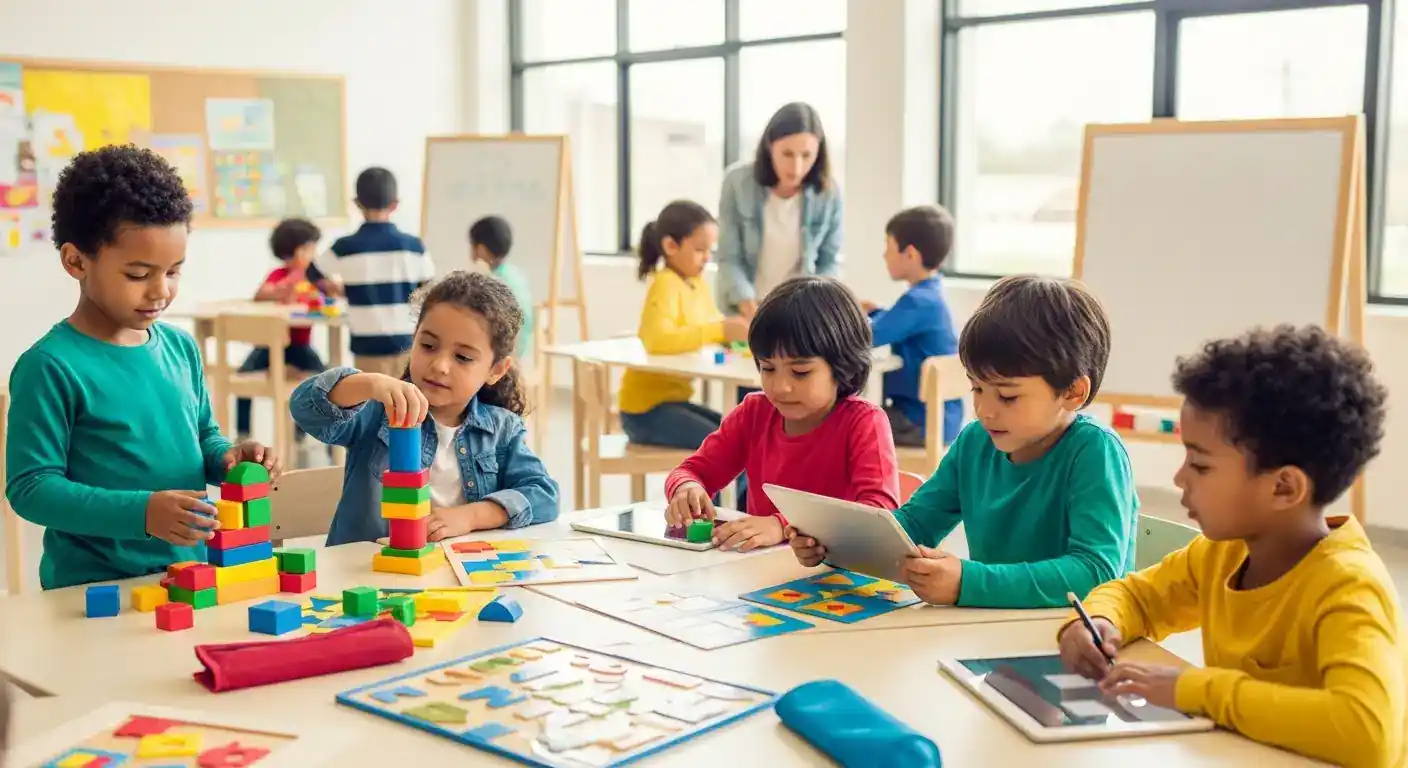Collaborating with Parents of Children with Special Needs

Brief Overview
Collaborating with parents of children with special needs is paramount to ensuring a child's academic, social, and emotional growth. Open communication, mutual respect, and shared decision-making are the cornerstones of successful partnerships. This collaborative approach fosters a supportive environment where children with special needs can thrive.
Key Points:
- Open Communication is Essential
- Shared Decision-Making Empowers Parents
- Mutual Respect Builds Trust
- Individualized Education Programs (IEPs) are Collaborative Tools
- Focus on Student Strengths
Collaborating with Parents: Building Strong Partnerships
Effective collaboration with parents of children with special needs requires a proactive and empathetic approach. Building strong partnerships benefits everyone involved, most importantly, the child. When parents and educators work together, they can create a consistent and supportive learning environment.
Understanding the Importance of Parent Collaboration in Special Education
Parental involvement is crucial in special education. Parents are the experts on their children, providing valuable insights into their strengths, challenges, and learning styles. This information is essential for developing and implementing effective Individualized Education Programs (IEPs). A 2024 study by the National Association of Special Education Teachers (NASET) found a direct correlation between parent involvement and student academic gains.
Strategies for Effective Collaboration with Parents of Students with Disabilities
Building strong relationships with parents requires consistent effort and clear communication. Regularly scheduled meetings, both formal and informal, provide opportunities to discuss progress, address concerns, and celebrate successes. Utilizing various communication methods, such as phone calls, emails, and even text messages, can enhance accessibility and keep parents informed.
- Active Listening: Truly listen to parents' perspectives and acknowledge their concerns.
- Empathy and Understanding: Recognize that parenting a child with special needs can be challenging and offer support.
- Clear Communication: Use plain language, avoid jargon, and ensure information is easily understood.
- Flexibility and Adaptability: Be open to adjusting plans and strategies based on parent feedback.
- Shared Decision-Making: Involve parents in the IEP process and value their input.
Fostering Collaboration Through IEPs and Beyond
IEPs are a cornerstone of special education, serving as a roadmap for student success. Collaborative IEP development ensures that parents' voices are heard and that the plan reflects the child's individual needs.
Utilizing IEPs as Collaborative Tools for Student Success
IEP meetings should be viewed as opportunities for collaborative problem-solving. Parents, educators, and related service providers should work together to develop goals, determine appropriate services, and monitor student progress. This shared responsibility fosters a sense of ownership and accountability.
Extending Collaboration Beyond the IEP: Home-School Connection
Collaboration shouldn't be limited to IEP meetings. Regular communication about homework assignments, classroom activities, and student behavior can strengthen the home-school connection. Sharing strategies that work well at school can empower parents to support their child's learning at home. For example, visual schedules used in the classroom can be implemented at home to create consistency. According to a 2023 study published in the "Journal of Special Education," consistent home-school communication significantly improves student outcomes.
Differentiated Content
- Focusing on Strengths: While addressing challenges is important, focusing on a child's strengths can build confidence and foster a positive learning experience. This strength-based approach fosters resilience and empowers students to reach their full potential.
- Cultural Sensitivity: Recognizing and respecting cultural differences is crucial for effective collaboration. Understanding a family's cultural values and beliefs can enhance communication and build trust.
Internal Linking Strategy
- Anchor Text: "Individualized Education Programs (IEPs)" - Target: /articles/understanding-individualized-education-programs
- Anchor Text: "home-school connection" - Target: /articles/strengthening-the-home-school-connection-for-students-with-special-needs
- Anchor Text: "Educational Resource Integration" - Target: /categories/resource-integration
FAQ Section
Q: How can I best communicate with parents who are hesitant to participate in the IEP process?
A: Building trust is key. Start by actively listening to their concerns and validating their feelings. Explain the IEP process clearly and highlight the benefits of their involvement. Offer flexible meeting times and communication methods to accommodate their schedules.
Q: What are some strategies for addressing disagreements between parents and educators regarding a child's IEP?
A: Focus on open communication and finding common ground. Clearly outline the student's needs and discuss various options for meeting those needs. Seek mediation from a neutral third party if necessary.
Q: How can schools support parents who are experiencing stress related to their child's special needs?
A: Schools can provide resources such as support groups, counseling services, and respite care information. Connecting parents with other families who have similar experiences can create a sense of community and shared understanding.
Q: What if a parent disagrees with the school's evaluation of their child?
A: Parents have the right to request an independent educational evaluation (IEE). Schools should provide information about this process and ensure parents understand their rights.
Conclusion and Call to Action
Collaborating with parents of children with special needs is an ongoing process that requires dedication and commitment. By prioritizing open communication, mutual respect, and shared decision-making, educators can build strong partnerships that benefit students, families, and the entire school community. We encourage you to share your own experiences and insights in the comments below. Subscribe to our newsletter for more resources on supporting students with special needs. For further reading, explore resources from the Council for Exceptional Children (CEC, 2025) and the Individuals with Disabilities Education Act (IDEA, 2023).
Future Expansion Topics:
- Technology Tools for Parent-Teacher Collaboration
- Supporting Multilingual Families of Children with Special Needs
- Transition Planning for Students with Special Needs